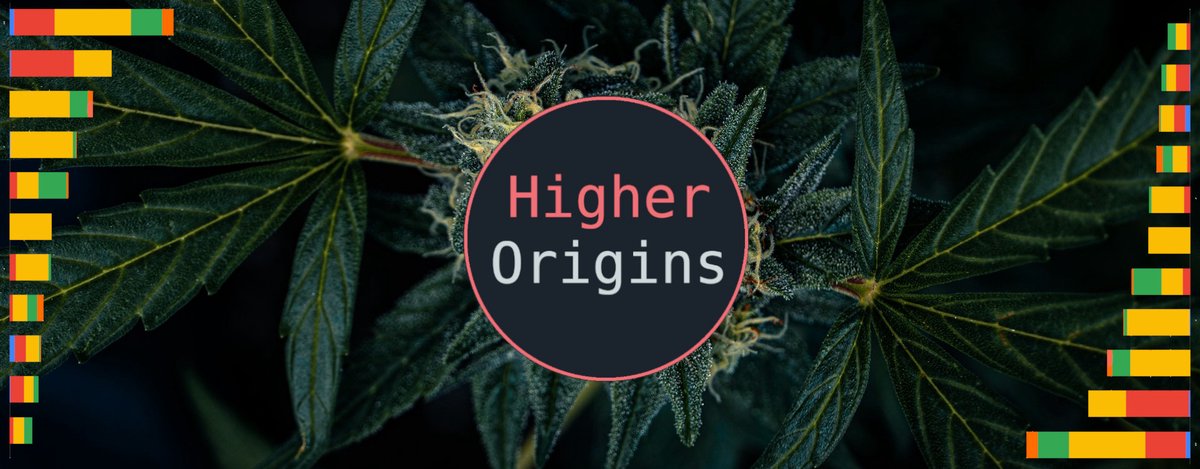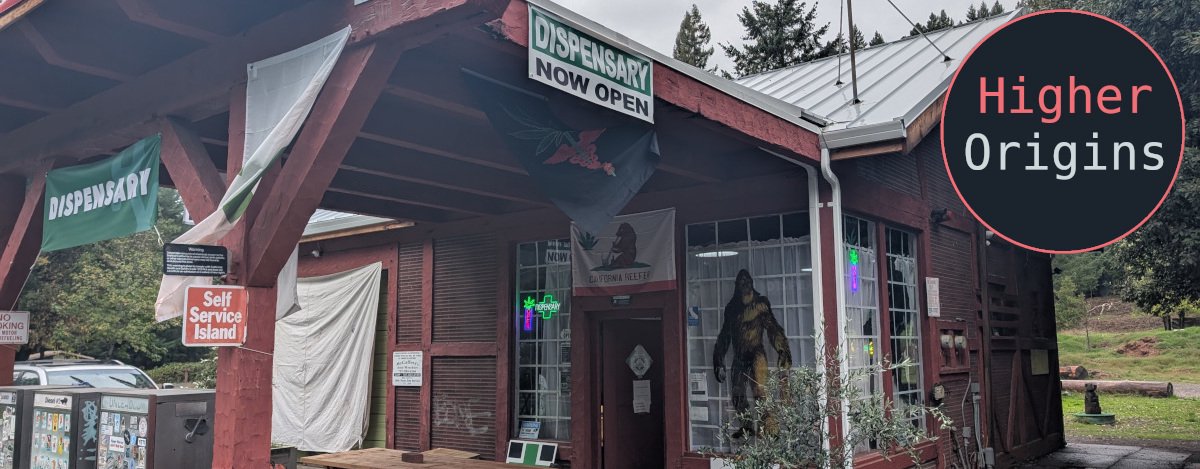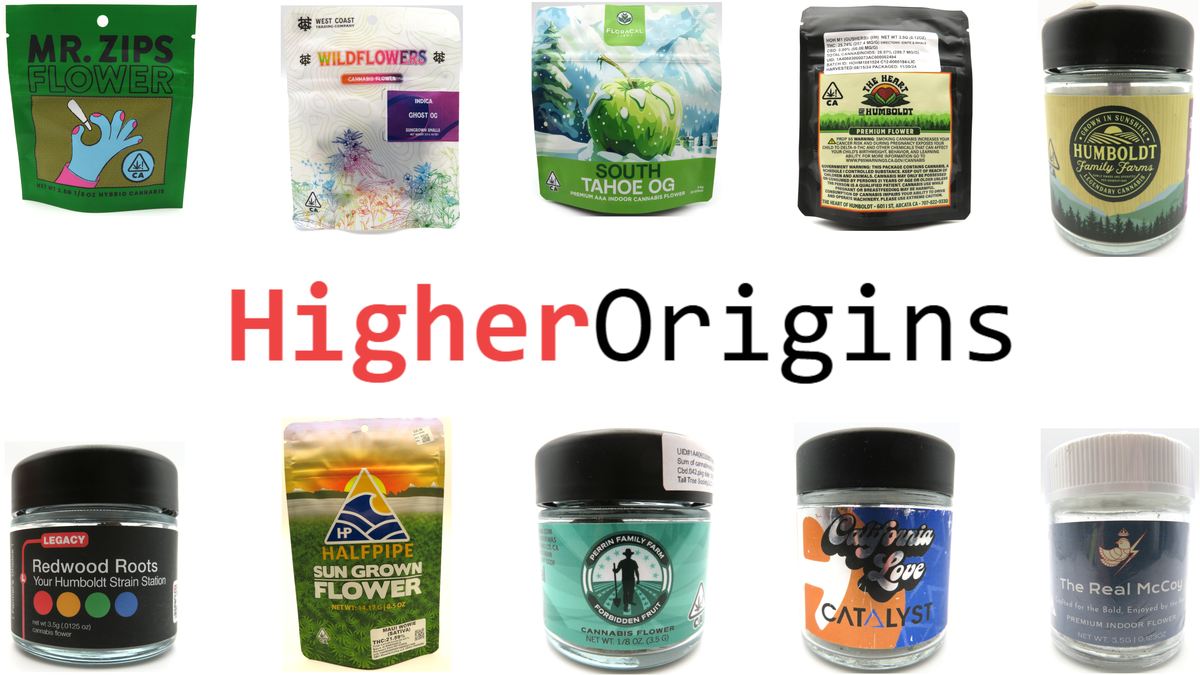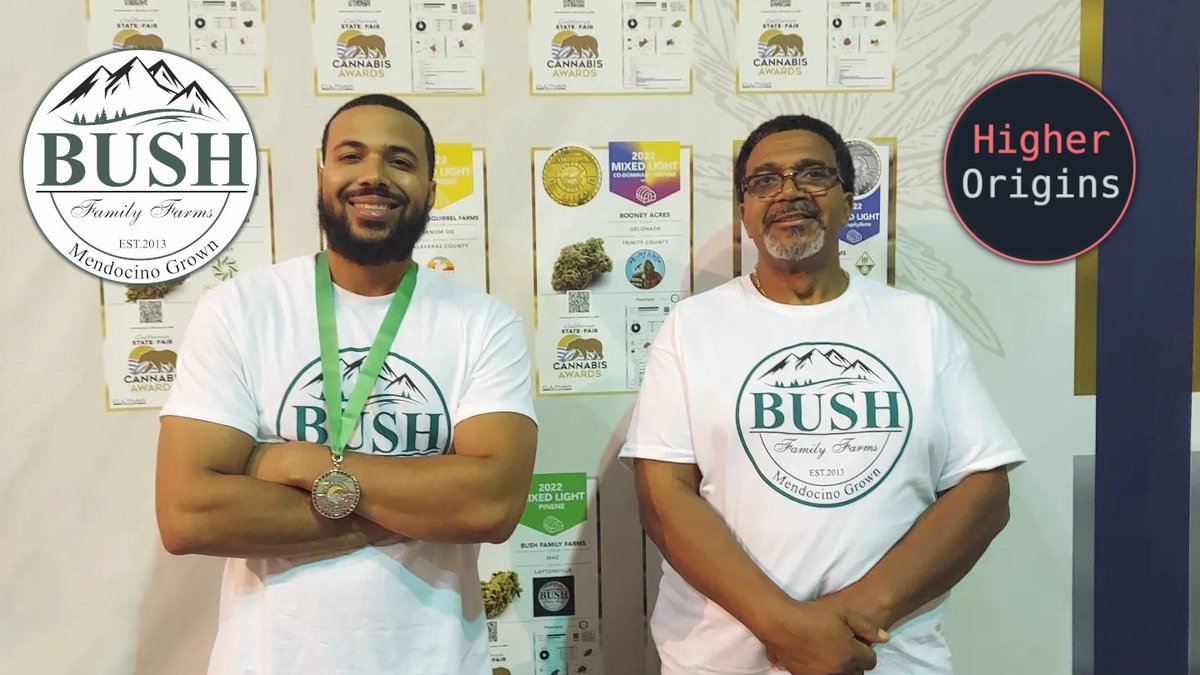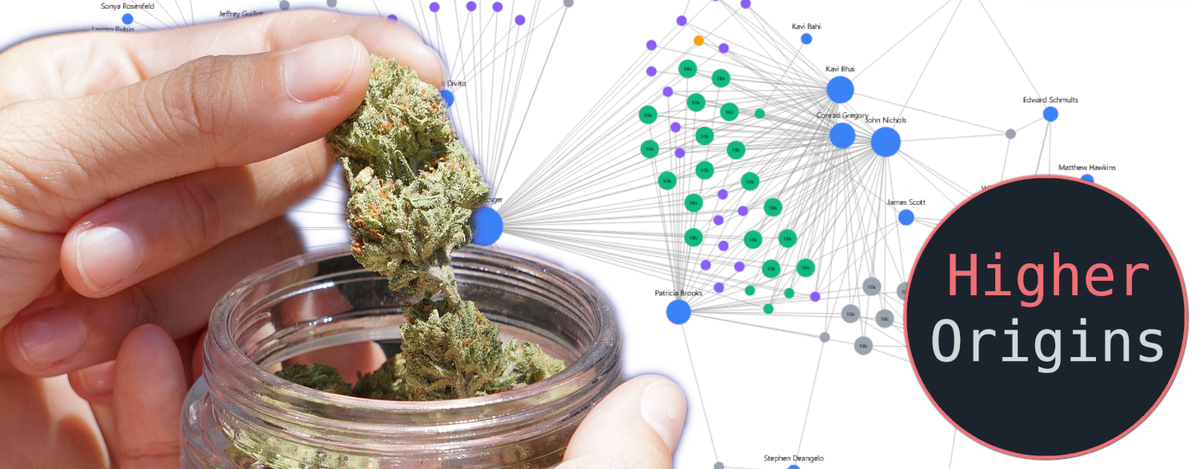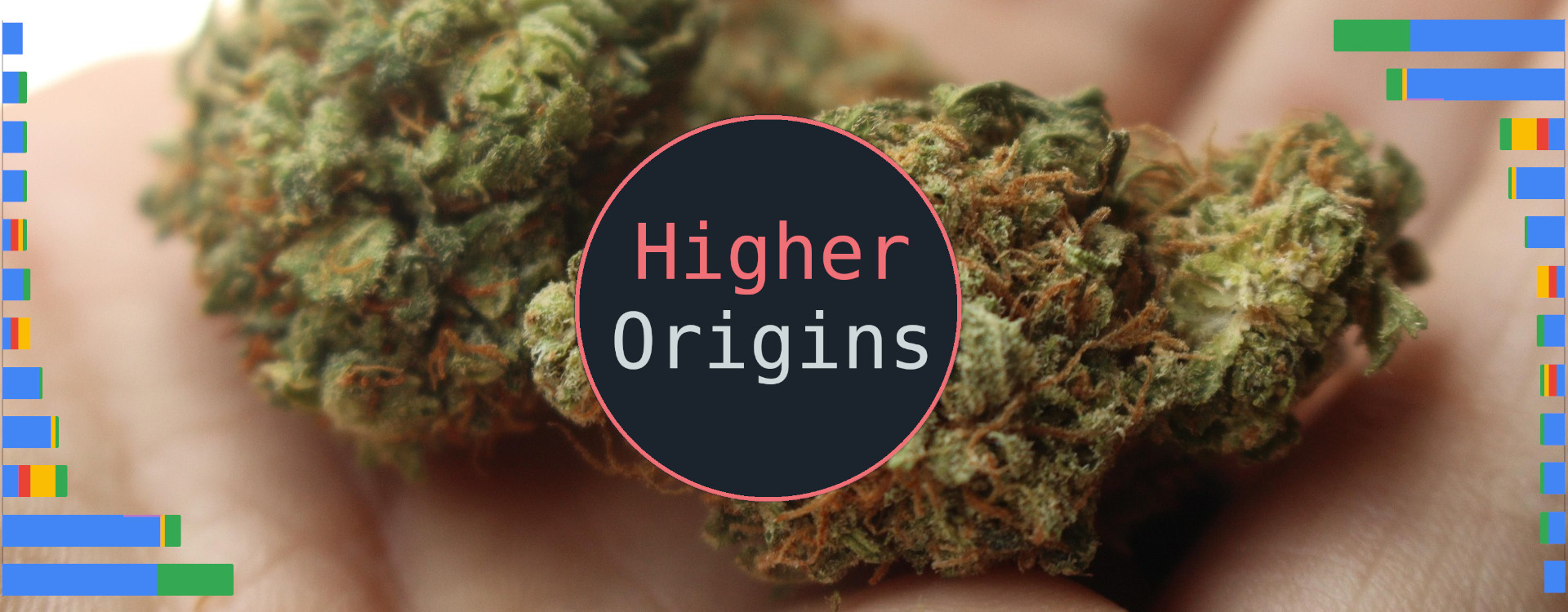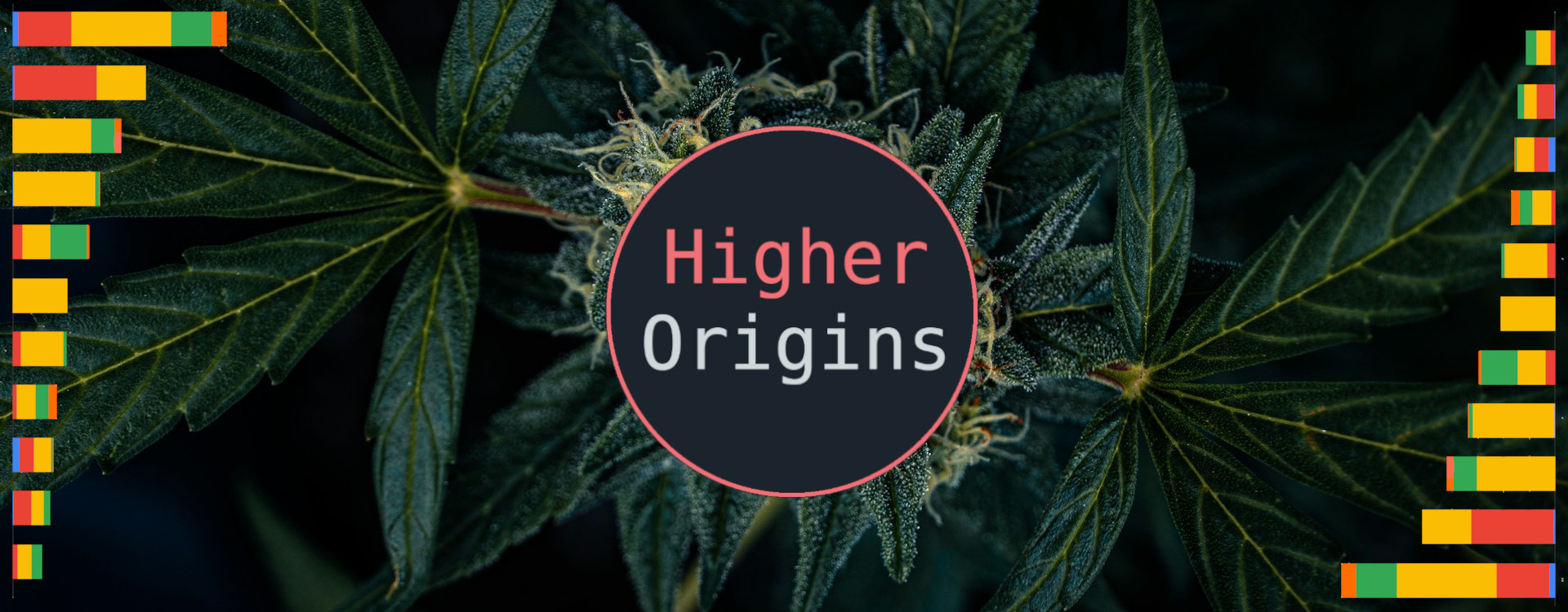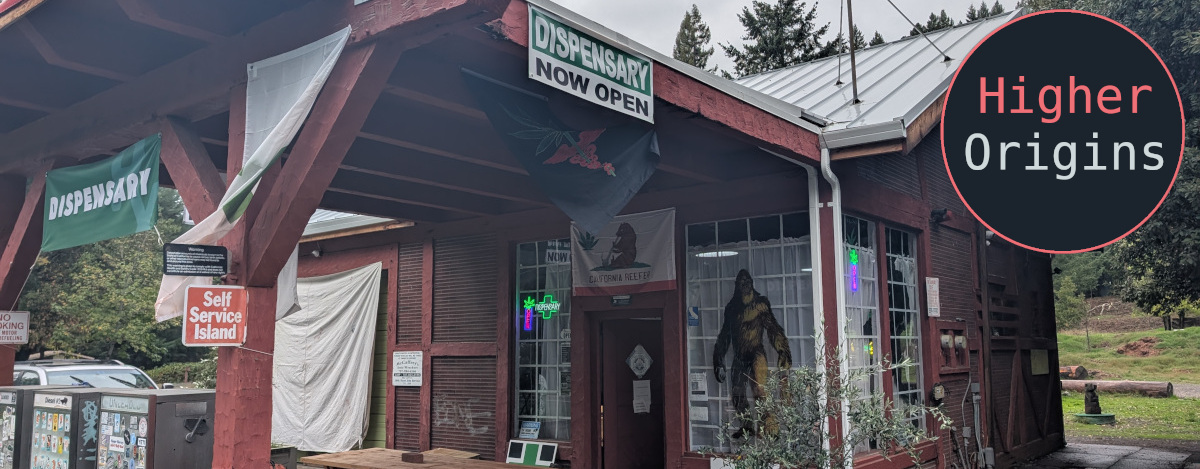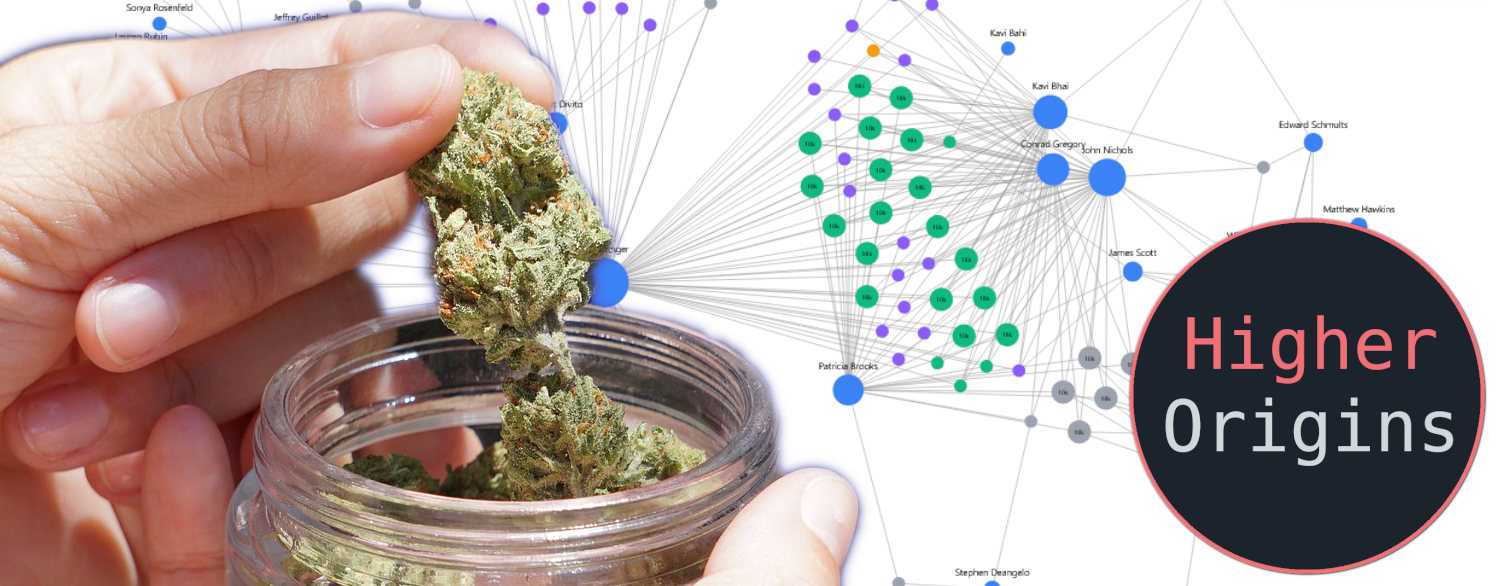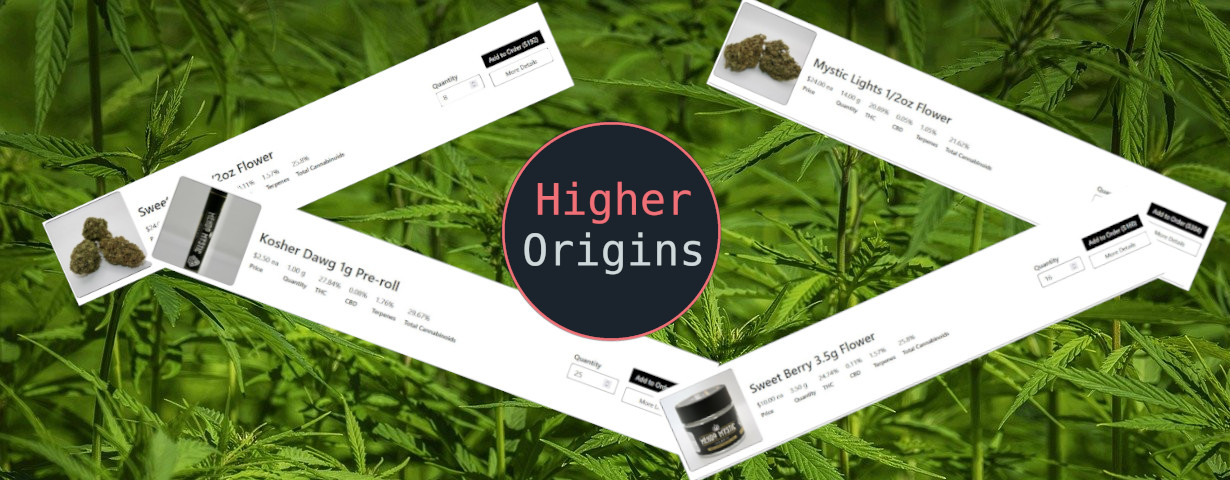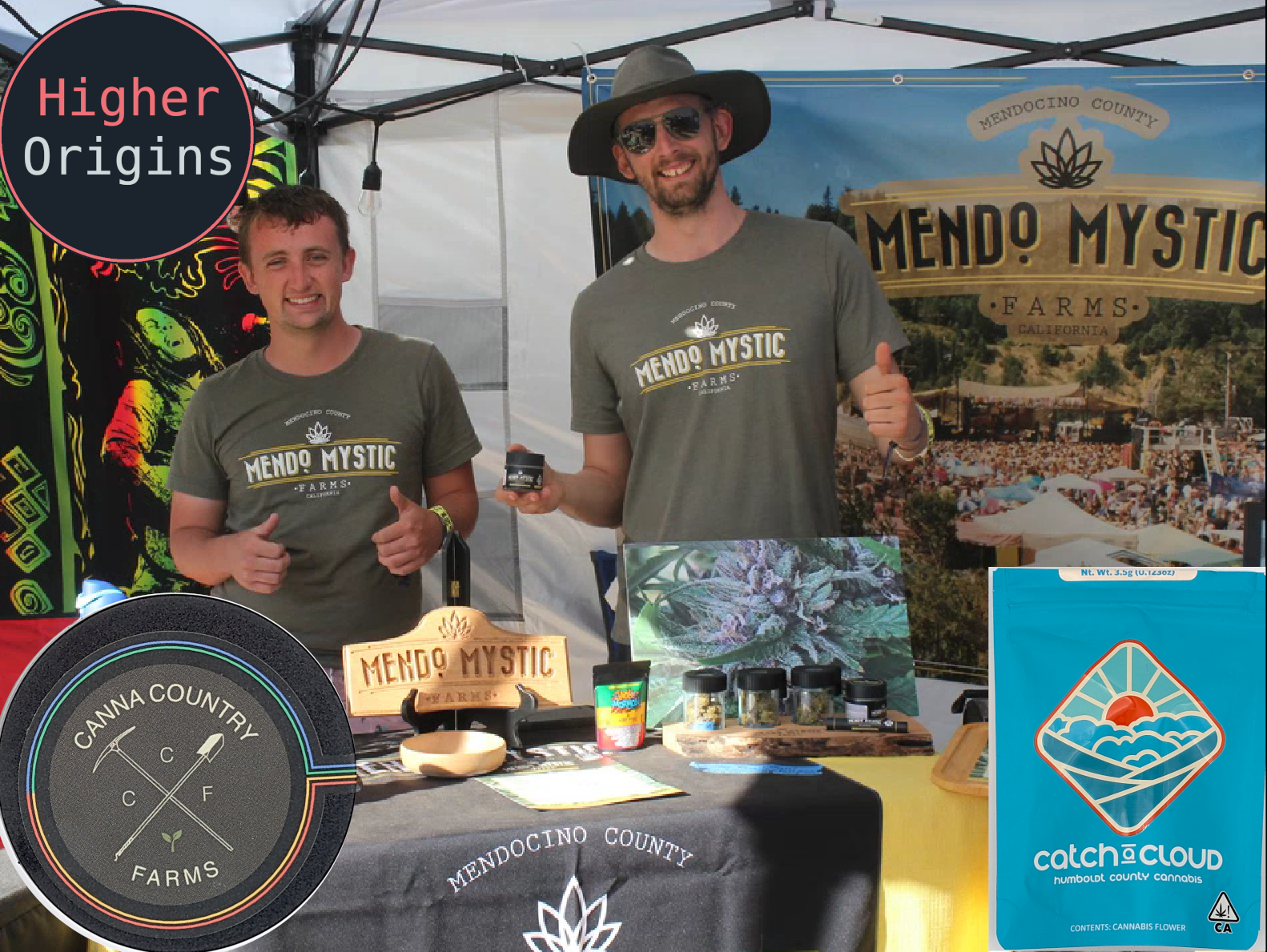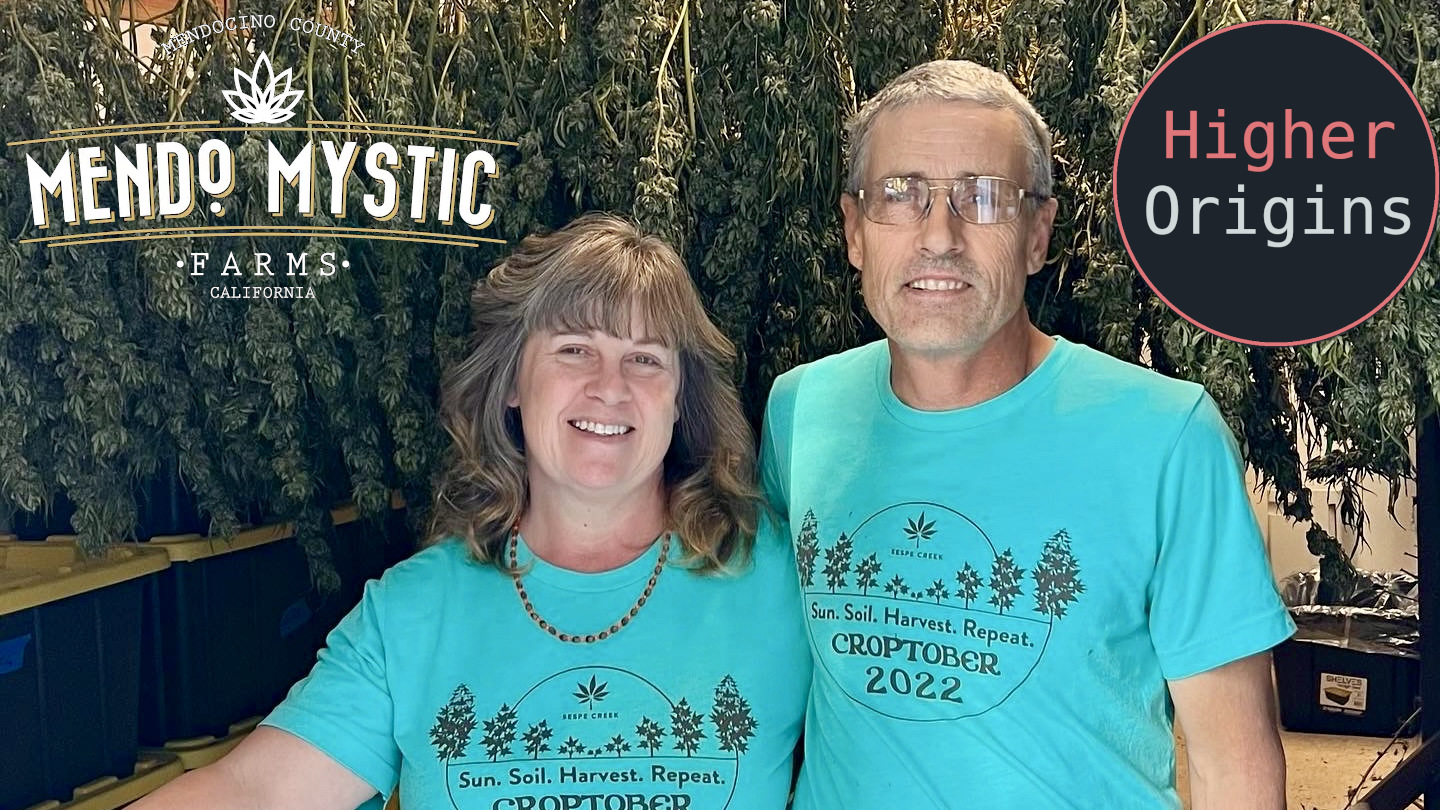By now, frequent readers might have noticed a certain theme around Higher Origins: our constant promotion of the small farms at the roots of cannabis culture. But why? Why do we think they’re so great? Have we just been out in the mountains too long? What’s the benefit to you, a California cannabis business, of working with smaller farms? We’re glad you asked. In this article, the first in a 2 part series, we will explain why working with small farms presents distinct advantages for brands. We will also cover the obstacles to working with small farms, and make the case of why Higher Origin’s community and platform focused approach is an ideal choice to reduce these obstacles.
Greater Variety of Strains
Small farms have a more varied selection of varieties that reflect their location, culture, and unique growing experience. Brands and wholesalers sourcing from smaller farms have access to a wider variety of more unique cannabis, which can help them differentiate themselves in the market. While factory farming can produce large amounts of fairly consistent cannabis, when multiple brands source from these large farms, they have little to differentiate themselves beyond branding material and marketing- they’re selling the same weed with a different pitch and label. Sourcing more specialty small farm cannabis can give brands a very real edge over their competition.
Larger farms must grow more uniform strains that allow them to operate more efficiently- economies of scale must be economized. This translates to smaller, faster growing plants with buds that are often bred to be denser and more resilient for machine-trimming. Plants are also chosen to be more resistant to disease, mold, and pests, as infestations can quickly spread in larger crops, especially if not all staff know what to look for. These adaptations for scaled up farming aren’t always bad- they’re logical agricultural practices, however, these differences can create a marked difference between small farm products and large scale products. Likewise, the more controlled growth environment of large farms can reduce the impact of the growth region’s unique terroir. We’ll talk more about terroir in the second article in this series. Ultimately, small farms have much looser criteria when choosing what they grow.
Quality VS Scale
Small farms are often cultivated by a small group of family and close partners, and with lower plant counts, there is more time for each plant to get individual care from someone who understands the full systemic operation of the farm. Often, these small farmers have experience with the same strain over multiple seasons, and can use that knowledge to catch and remedy issues early.
In larger facilities, plants are cared for on more of a batch basis, by workers who may not always have extensive knowledge of the strains or their growth properties. While this makes sense at a large scale and is realistically the only way to grow past a certain scale of cultivation, it does mean that you can have less expert one on one time with each plant. As the farm scales and the labor headcount increases, the roles become more specialized, which means different people are focused on different things about the plants. However, the larger a team is, the harder it is to control quality. Simply put, large complex teams with more specialization of cultivation duties have more failure points that need to be managed, and if they aren’t managed properly, could result in quality problems.
Ownership of Quality
Small farms are grown by their owners- this is THEIR product, and it (hopefully) pays their bills- a sense of responsibility and pride in quality is inherent in small farms. In larger farms, the larger they get, the less personal connection there is to the plants and the lower the stakes for the employees- in a small farm, a sick plant is YOUR sick plant that reflects poorly on YOU and might make YOU lose money. In a factory farm, the plants belong to the boss, and you get paid so long as you work as directed- there’s less stakes, it’s not a livelihood, it’s a job. Also, small farms are much more directly involved with the sales process- if their weed is bad, the buyer who has to tell them that and turn them down is telling it to the person who grew it. In a big company, the sales department who might get rejected is several organizational levels away from the people growing the plants- cultivation quality failures don’t personally reflect the failures of the salespeople.
The Brand Appeal of Small Farms
Forming lasting brand loyalty needs some sort of hook- be it outstanding quality, unique products, or a good story. Selling small farms products and strongly promoting their stories cleanly accomplishes all three at once. Sure, consumers might buy an 8th because it’s endorsed by a celebrity, but buying small farm cannabis is a different and more relatable story- they’re actively contributing to a person’s business, not just another income stream in a media empire. Small farm profit margins are in some cases close enough that even a few jars make a real difference, and so a consumer’s purchase has much more of an impact. But it’s not just about the charity aspect of helping the small guy over the rich guy, it can be backed up by quality, story, and specialty. Simply put, the marketing approach is as follows:
Show the buyer how their purchase helps small farms and the culture they represent
Tell the buyer their authentic story and explain why it makes their product unique
Have the buyer experience this firsthand through consuming their product
Cannabis as an American industry started with small farms- it’s been that way for decades, and the vast majority of cultural struggles, activism, progress, and legalization was focused on freeing weed grown on small farms. The current expansion of large farms is brand new, build atop the groundwork done by decades of small farms, which still make up half the cultivation area in the state. While the current Californian economic model puts these farms at a disadvantage via high taxes and restrictive supply chain regulations, their cultural value and authenticity is undeniable. Any brand that can authentically represent and market small farm cannabis and the people who grow it will have a fundamental advantage in the eyes of consumers over a brand that sells the same macro-farmed strains as a dozen of their competitors.
Obstacles to Working with Small Farms
Small farms are often rural, which means that they aren’t within easy reach for largely urban-based logistics companies. Wholesalers looking to buy have to worry about their cost per mile to send a van or buyer out for pickup or sampling, as well as time cost for longer trips.
Small farms are generally harder to get ahold of since they are busy farming, something that can be a problem when buyers start calling everyone in their Excel sheets who might have weed. The farm that sells their weed first isn’t always the one with the most or best weed, it’s because they're the only one that answered the phone.
Small farms may have a distrust of larger brands- the State-mandated distro/broker/middleman model has created a niche for shady businesses that prey on small farms. As a result, it’s not uncommon for farmers to retreat a little bit from deals involving distant buyers with little to no cultural connection. Small farm’s preference for working with smaller local distros is a natural defense mechanism against predatory wholesalers. Therefore, a well intentioned brand might just hit a wall in their attempts to work with small farms, not because they’re intending to screw anyone over, but because a cultural barrier exists that makes it hard to establish trust.
Small farms don’t have the resources to keep everyone up to date on their inventory- when small farms have to chase several different often unreliable sales options at once, they often have to take the sale they can get, and if a potential buyer gets back to them later and the harvest has already been sold, it’s a matter of first reliable, first served.
Farms usually don’t have a dedicated distro or transporter so logistics can be a pain. While a farm might have good access to a reliable transporter or distro one year, these relationships are not always long lived, so one farm that could easily get pounds to the warehouse one season might have lost access to trusted logistics.
Cost Benefit Analysis
So, small farms offer benefits, but they also can be harder to work with. A savvy brand manager might be asking- “How does this make financial sense? Do the additional costs outweigh the benefits?” It’s a fair question- will the extra cost and complexity that comes with sourcing from small farms translate to more sales off shelves in comparison to white labeled macro-farmed weed? This really is the question that Higher Origins has been built around- How do we ensure that the answer is Yes? The answer comes down to how efficiently a brand can make the process of working with small farms, and how effectively they can communicate the small farm advantage to consumers to convert to a sale. Here are the ways that Higher Origins can help make this a reality:
How Higher Origins Eases Small Farm Sourcing
Higher Origins syncs the farm's inventory with METRC, allowing them to list in real time any compliant packages they have for sale in one centralized marketplace. This eliminates the exploratory phone call process for brand buyers: they can see what’s for sale and make an offer, even if the farmer is out in the field and can't answer the phone.
Higher Origins is building a network of affiliated distributors to warehouse and move products throughout the state. This will simplify the logistics process, and provide a predictable percentage cost for distribution through known channels, rather than the current model where costs are determined by the distributor’s ability and willingness to broker higher margins for themselves.
All businesses on Higher Origins have a reputation score based on their current and past transfers. This review system allows for both parties in a transaction to review each other based on reliability, quality, and business practices. Additionally, Higher Origins provides standardized terms and enforces consequences for late or incomplete payment of orders placed through the platform.
We see knowledge of terpenes as critical to the future of cannabis marketing and brand differentiation, so we’re building data-backed terpene tools into our platform, allowing buyers to view and compare the small farm terpene difference.
Higher Origins provides farm profiles, interviews, and strain summaries in order to make it easier than ever to get to know a small farm and promote their story to retailers and their customers.
Conclusion
Brands in California have much to gain from focusing on sourcing from small farms. Their unique offerings and hands-on approach, as well as their connection to the roots of the cannabis industry and marketable stories, can deliver real opportunities for brands to stand out among their competitors. While these farms may be more difficult to build into the supply chain than large scale producers, an efficient approach can make the extra difficulty profitable. Higher Origins has been and will continue to build tools and relationships to make the process of sourcing from small farms more accessible than ever.
Keep an eye out for Part 2 of this series dropping in 2 weeks, where we will look more at the benefits that small farm sourcing has for retailers and consumers. If you want to help grow the Higher Origins community, you can become a supporter today, or if you're a California cannabis license holder, sign up here!
Stay cool, shop small farms, and stay wildfire safe!
-The Higher Origins Team

